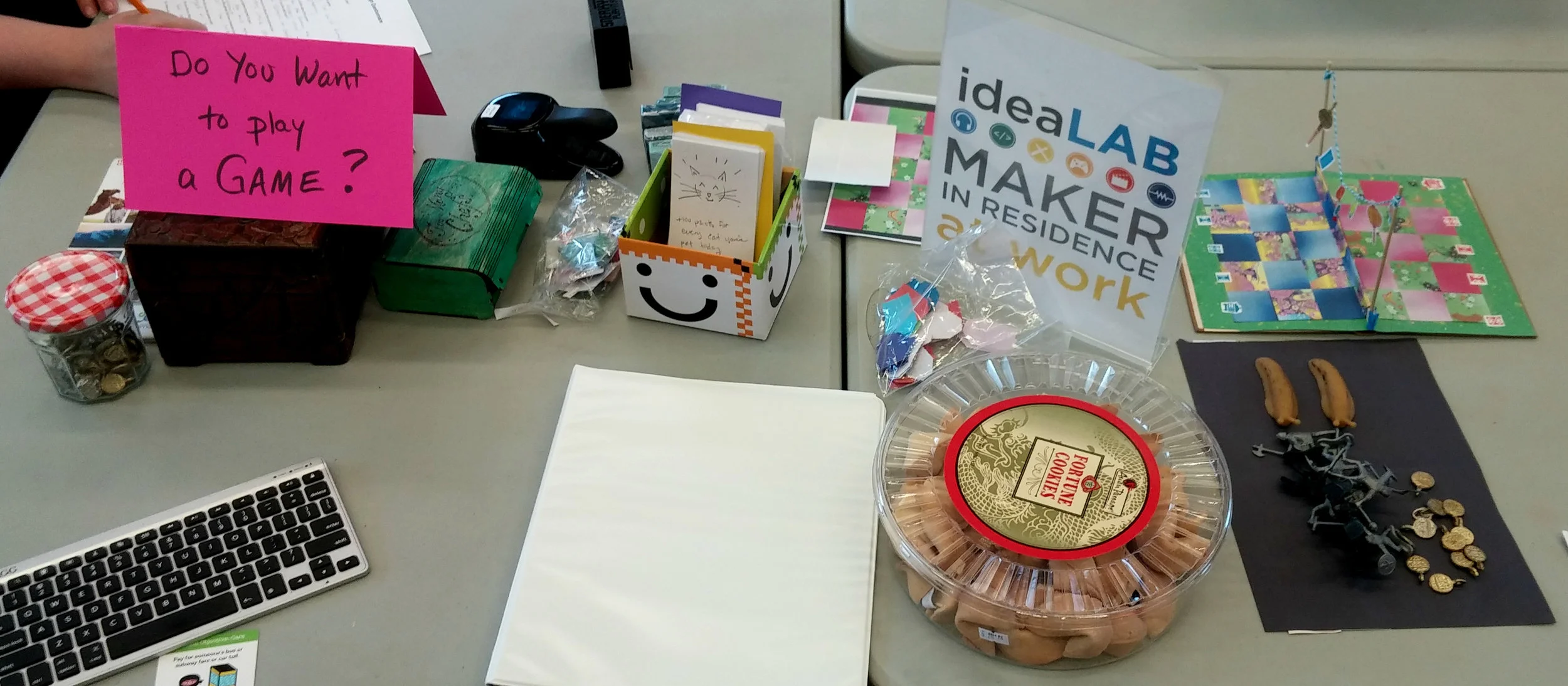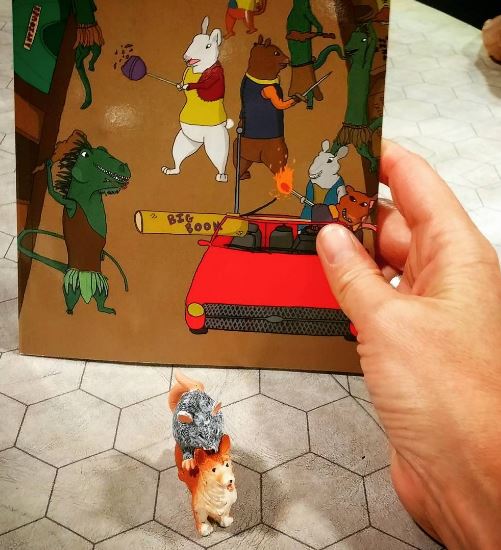For the month of May I’ll be the “Maker In Residence” at the Denver Public Library’s ideaLAB on the 4th floor of the central library. I’m absolutely delighted to have prolonged hang out time in this fabulous space with access to 3d printers, soldering and building tools, sewing machines, a Cricut cutter and design software. During my residency time I’ll be exploring the tools in the lab as well as interacting with folks who come in to use the space and get their thoughts on tabletop game creation and design. On June 4th and 28th I’ll host two workshops in the lab teaching game design fundamentals and ways to utilize lab materials in the creation process.
My workshop titled “Anybody can Make a Game and Everybody Should” is a loaded topic and much like my favorite games- the concept is easy to understand, easy to participate in but as you dig deeper, the subject is epic and could consume years of a person’s life. A delightful prospect. It is a meditation of some of my favorite things that make us human- community, art, storytelling, competition and a quest for adventure and knowledge.
Even though this journey is in its infancy I’m already making discoveries, some things which should be obvious; game design is actually hard and playing tabletop games with people can be intimate and revealing experience.
Throughout human history a one point in our lives we’ve all played games- on the playground, with neighborhood kids, with our parents. It is one of the things like art and language which make us human- certain animals play like dogs and dolphins but people make rules changing the dynamics of the experience- from chasing a ball because it’s fun to catch things to a competitive parced moment with goals and winners and losers.
Why we play games and why some people stop playing games as we age is something I’m hoping to meditate more on during the coming weeks. As kid I loved all kinds of games- freeze tag, Battleship, charades, but I was an only child so my opportunity for play was dictated by who was available to spend time with me and who felt up for a game that day. It was my first barrier for entry.
I very specifically choose the words “Anybody” and “Everybody” when designing the thesis for this project because I think there are a huge number of reasons why people stop playing games and the democratization and access to play and design is a huge benefit to us all.
In preparation for the residency I recently attended two really great game events in Denver- the tabletop convention Conclave of Gamers and Denver University’s very first presentation of Colorado Independent Gamers the DU Arcade. Both meetups gave me the opportunity to visit with people who had designed their own games and released them into the wild.
One of the games I tried at the Conclave was “RP Cheese” a Dungeons and Dragons style role playing game (RPG) My game master (GM) was Joe one of the creators of the game and he wore a giant foam cheese hat. You don’t need one of those to play, it was a great gimmick to get folks to check out his game and it absolutely worked for me. Everything about playing the game was delightful- Joe and his cousin had done the artwork in the game books- my character was a toy mouse riding a toy Corgi and I had to fight a band of plastic lizards to save a kidnapped baby hamster, Joe narrated the whole game in character and was a great storyteller.
Joe had done something lots of developers had done before him- taken an old standard and modified the rules to make a new game, something he’d like to play with his friends, something he wanted to share and it became a completely unique experience. He and his friends brought writing, strategy, design and performance art and community to RP Cheese. Taking things to another level they created additional adventures and made products available for download.
At DU Arcade I visited with Troy Whitney who had created a free to use online RPG generator FyxtRPG The website allows users to quickly write their own dungeon crawl stories using any characters they’d like in custom settings. I’m planning to explore the site further and make a very non traditional game, maybe Laverne and Shirley traveling through time or something based in politics or folklore to see how the mechanics translate into various scenarios. The ideaLAB has other RPG creation software, RPG MV on their computers which I’m going to dig into too, since they look like very different products.
Another thing I’m learning is that game building doesn’t happen in a vacuum- having lots of input and test playing is invaluable. I’ve put together an introductory survey and am appreciative of any feedback on this process or the individual games which I’ll be creating and uploading.
I’ll be making other resource available- Books I’m using in my research, websites, videos and podcasts and a facebook page I’m setting up to host conversations around the project. Above all I’m looking forward to playing with my friends and seeing where we end up at the end of this project, lets roll!



